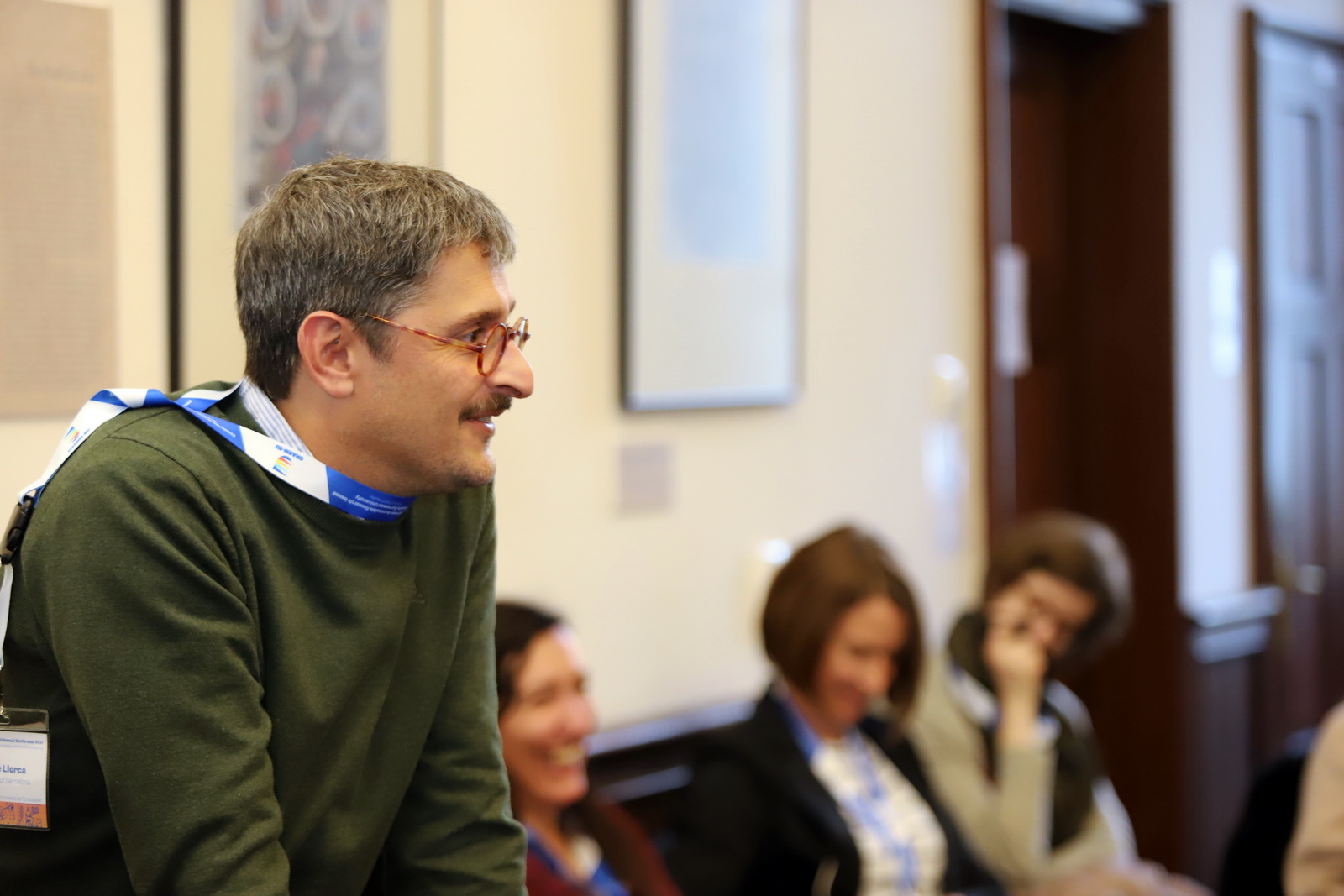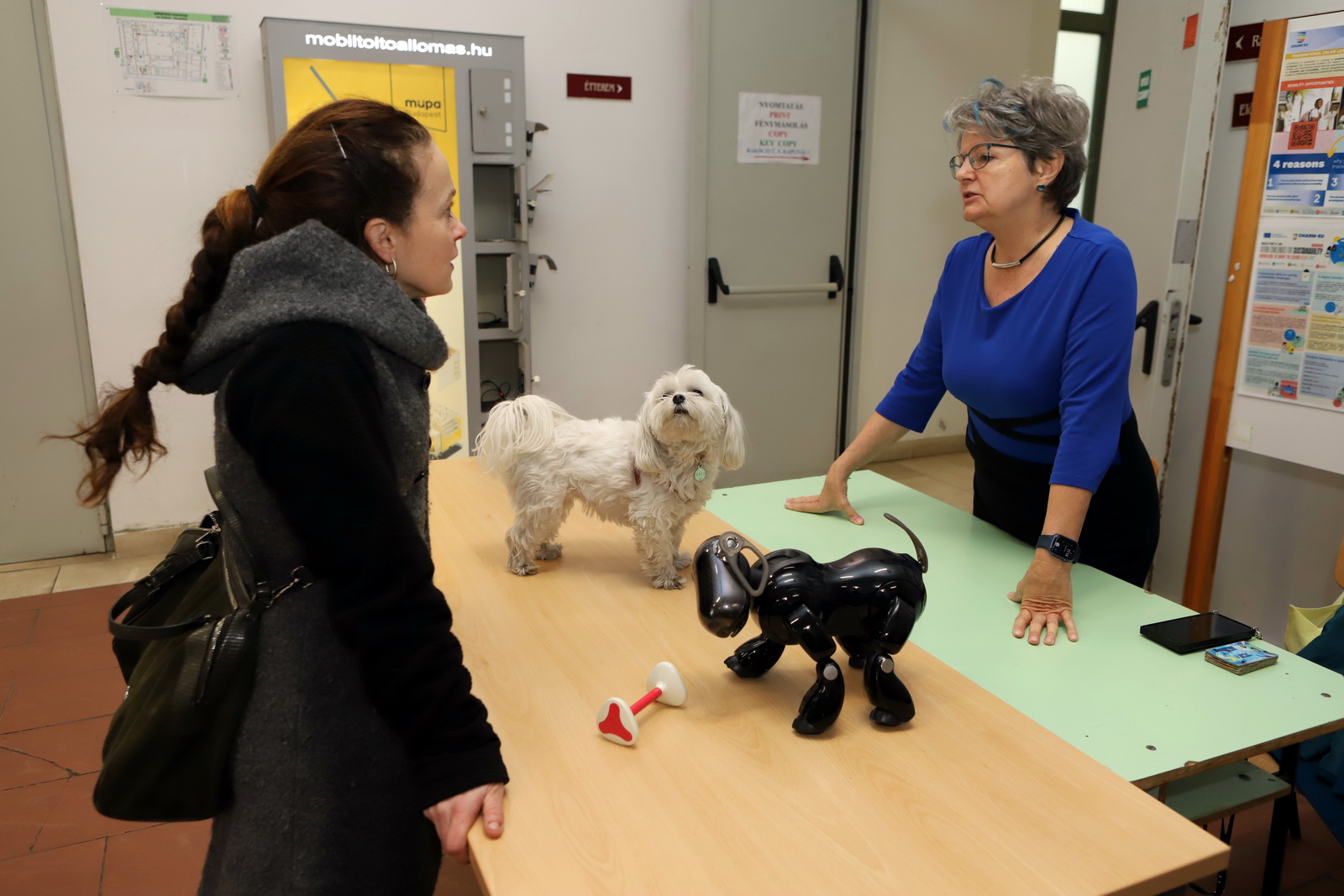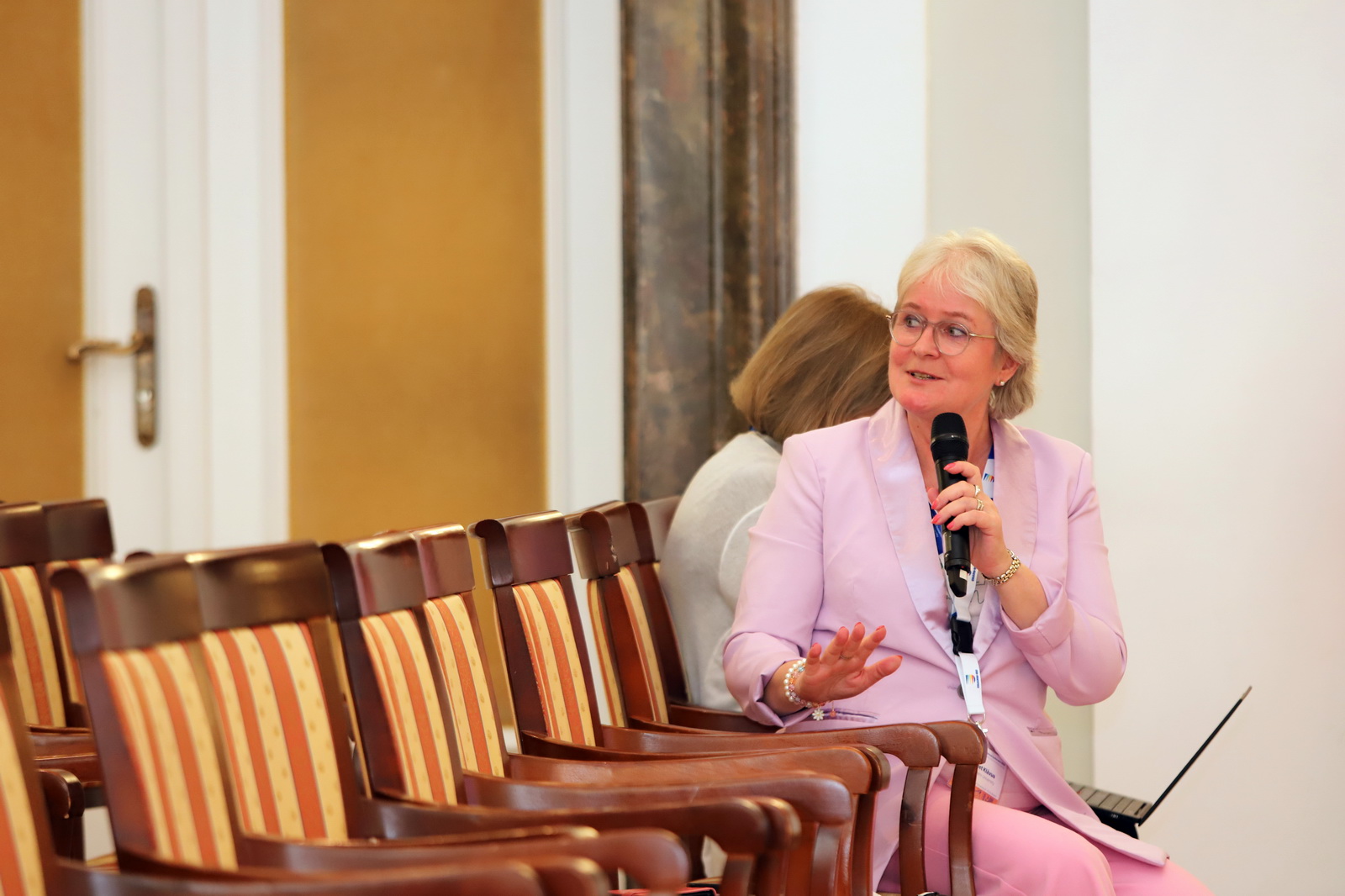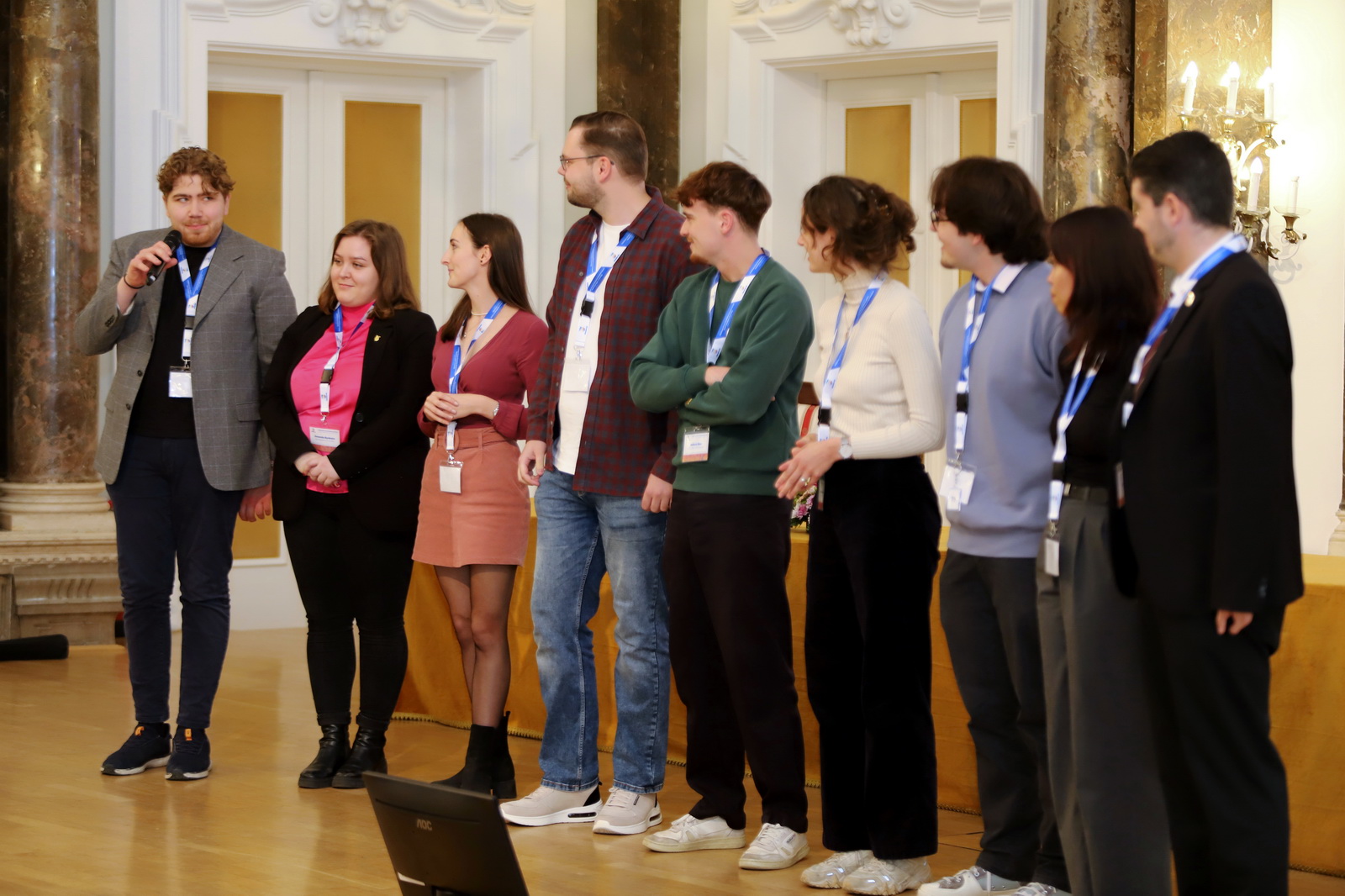Connecting Cultures: CHARM-EU Days at ELTE

European higher education also reflects Europe's cultural diversity: institutions with different traditions and structures represent a wide range of geographical, cultural, linguistic, economic, and historical perspectives. European university alliances – including CHARM-EU, of which Eötvös Loránd University is a member – have operated in a unique, intercultural, and cross-border environment since their founding, presenting numerous unique challenges and opportunities.
On November 5-6, 2024, Eötvös Loránd University hosted the annual conference of the CHARM-EU university alliance and related events. This year's main theme was intercultural learning, dialogue between cultures, and the role of CHARM-EU and, more broadly, European University Alliances. How does culture shape our identity, and how does it influence our future? In a globalizing world, how does experiencing each other's cultures promote acceptance and even self-understanding? The conference explored the tasks facing European university alliances through lectures, panel discussions, and workshops. The event was attended by students, staff, representatives of other university alliances, policymakers, and external parties.
 "The atmosphere of this year's CHARM-EU annual conference was simultaneously professional, inclusive, and supportive of active involvement. Such an event not only provides excellent learning opportunities but also significantly fosters the development of relationships and collaborations that go beyond the conference and contribute greatly to the growth of a professional community. For me, the panel discussion on intercultural awareness was very useful, as it provided a valuable opportunity for meaningful debate. The musical performances were a unique and refreshing element of the conference, and the interactive workshops, as well as the poster session held in a more informal setting, were very successful. It was great to see how participants actively engaged in the discussions." – Jaime Llorca, Project Manager at the University of Barcelona.
"The atmosphere of this year's CHARM-EU annual conference was simultaneously professional, inclusive, and supportive of active involvement. Such an event not only provides excellent learning opportunities but also significantly fosters the development of relationships and collaborations that go beyond the conference and contribute greatly to the growth of a professional community. For me, the panel discussion on intercultural awareness was very useful, as it provided a valuable opportunity for meaningful debate. The musical performances were a unique and refreshing element of the conference, and the interactive workshops, as well as the poster session held in a more informal setting, were very successful. It was great to see how participants actively engaged in the discussions." – Jaime Llorca, Project Manager at the University of Barcelona. CHARM-EU is building a challenge-driven, research-based, inclusive European university model that makes mobility the foundation of its operations, aligning with European values, the European Green Deal, and sustainable development goals. The members of the alliance view the world in various ways, but they must face the same challenges every day. "Our struggles are most often caused by the differences between our cultures," said László Borhy, academician and Rector of Eötvös Loránd University, at the opening event. "However, it is not despite this, but precisely by remembering, recognizing, and understanding these differences that the inspiring motto of the 2024 CHARM-EU Days became 'Bridging Cultures, Embracing Diversity'." This was emphasized by the rectors and vice-rectors of the nine partner universities, who all greeted the audience in their native languages during the ceremony. "We, the universities, are the guardians of the gateway to knowledge," said Jan Butí, President of the CHARM-EU Student Council. "Together, we must build a future where every voice is valued."
Nguyen Luu Lan Anh's keynote speech addressed the challenges of internationalization. The goal of internationalization is to achieve global intercultural integration while safeguarding minority languages and considering sustainability. The Director of the Intercultural Psychology and Pedagogy Institute at ELTE has mapped the process of international student integration through numerous studies. As she explained, it is crucial for incoming students to feel acceptance and equal treatment. Universities need to create an inclusive environment and actively support interactions between international and local students. The success of integration depends as much on individual efforts as on the inclusive university environment. The sense of well-being can be strengthened by developing cultural intelligence, stress management, and, where necessary, providing adequate support. The development of cultural awareness and self-awareness is also essential for success.
 and questions. An important added value of the event was that we not only presented and discussed the key points and topics important to CHARM-EU, but also complemented them with actual, live cultural events. This bridge between theoretical discussions and practical cultural experiences made the program more relevant and memorable." – Silvia Gallagher, Researcher at Trinity College Dublin.
and questions. An important added value of the event was that we not only presented and discussed the key points and topics important to CHARM-EU, but also complemented them with actual, live cultural events. This bridge between theoretical discussions and practical cultural experiences made the program more relevant and memorable." – Silvia Gallagher, Researcher at Trinity College Dublin. The plenary sessions of the conference, involving each member university of the CHARM-EU Alliance as well as several other alliances and collaborating higher education institutions, addressed two key areas related to interculturality: in the morning, the focus was on the challenges and opportunities that arise in the work of alliances, particularly in terms of preparing students interculturally and raising awareness; the afternoon session focused on the importance of collaborating with higher education institutions in countries commonly referred to as the "Global South," with a spotlight on related best practices.
The workshops sparked debates on topics such as challenge-based learning, student exchanges, the use of artificial intelligence, and language issues. Participants shared exercises with each other regarding the operation of joint virtual offices already established in various university alliances.
 "The theme of this year's conference, intercultural awareness, communication, and intercultural learning, was a great choice, as it clearly sparked significant interest, which was evident in the active presence of the participants. A large part of the cultural festival program was also designed in this spirit, which turned out to be a successful concept: the event was an exciting mix of culture, music, dance, games, sports, and many other programs. Thanks to ELTE for the excellent event organization." – Harriet Klåvus, Head of the International Office at Åbo Akademi University.
"The theme of this year's conference, intercultural awareness, communication, and intercultural learning, was a great choice, as it clearly sparked significant interest, which was evident in the active presence of the participants. A large part of the cultural festival program was also designed in this spirit, which turned out to be a successful concept: the event was an exciting mix of culture, music, dance, games, sports, and many other programs. Thanks to ELTE for the excellent event organization." – Harriet Klåvus, Head of the International Office at Åbo Akademi University. The event, which had been held independently in previous years, was this year supplemented by the first Cultural Festival of the university alliance. At the opening, Meritxell Chaves, Secretary General of CHARM-EU, emphasized the unique spirit of the Alliance, stating, "Through the interaction of the members, something much greater has emerged than in the case of usual bilateral collaborations."
While the conference was introduced with a guitar performance showcasing the musical culture of the CHARM-EU countries, the festival opening featured the ELTE Bartók Béla Choir performing Beethoven's Ode to Joy in all CHARM-EU languages, emphasizing that culture is not only a bridge between the member countries, but also an empire that we can explore together in its diversity.
The Cultural Festival offered an insight into the cultures and languages of the nine CHARM-EU partners through cultural programs, challenges, and playful tasks covering various art forms. The two-day event was hosted at the ELTE Trefort Garden campus, with many departments and institutes of the Faculty of Humanities involved in the implementation of the program. Additionally, partner universities ensured local programs that allowed students, faculty, and staff to participate from the campuses in Barcelona, Dublin, Utrecht, Montpellier, Turku, Würzburg, Mülheim, and Bergen.
 Alliance and the student representation intersect, and how we, as members of the Student Council, can support our students. I was also able to personally meet the young people currently studying at ELTE through the CHARM-EU mobility framework and had numerous informal conversations with students, faculty, and CHARM-EU staff who were attending the festival." – Réka Boros, Vice President for Foreign Affairs of EHÖK, member of the CHARM-EU Student Council.
Alliance and the student representation intersect, and how we, as members of the Student Council, can support our students. I was also able to personally meet the young people currently studying at ELTE through the CHARM-EU mobility framework and had numerous informal conversations with students, faculty, and CHARM-EU staff who were attending the festival." – Réka Boros, Vice President for Foreign Affairs of EHÖK, member of the CHARM-EU Student Council. Organizing and executing over fifty local programs posed a significant challenge for the staff of the ELTE CHARM-EU Office, with Anikó Béltekiné Gál and Mária Szulovszky taking leading roles in coordinating the programs. As highlighted by the head of the Office, Ferenc Takó, it is very rare to have a festival that is thematically this comprehensive (covering literature, music, gastronomy, sports, etc.), even for one culture, let alone for eight countries and 11 languages.
The program, open to all interested, featured folk music and dance houses, theater and literary events, language and cultural games, quizzes, cultural escape rooms, film screenings and discussions, cooking clubs and waffle-making, open seminars, exhibitions, an international karaoke night, and much more. The winner of the short film Instagram challenge won a ticket to the Primavera Sound festival in Barcelona.
.JPG) "The CHARM-EU Cultural Festival in Budapest was a wonderful experience. It provided an excellent team-building opportunity for all CHARM-EU colleagues while also allowing us to meet with local colleagues and ELTE students. The quizzes, games, and karaoke night brought us together in a truly fun way!" – Annet van der Riet, Educational Methodology Expert at Utrecht University.
"The CHARM-EU Cultural Festival in Budapest was a wonderful experience. It provided an excellent team-building opportunity for all CHARM-EU colleagues while also allowing us to meet with local colleagues and ELTE students. The quizzes, games, and karaoke night brought us together in a truly fun way!" – Annet van der Riet, Educational Methodology Expert at Utrecht University. One of the most successful activities was the Bazaar of untranslatable items translator game, where non-native festival-goers competed to translate difficult Hungarian expressions, such as the name of the ship captain in Rejtő’s novels, Fülig Jimmy. Many also tried to learn commonly used Hungarian expressions during the Hungarian Picnic program, which showcased Hungarian specialties, in exchange for the reward of tasting traditional Hungarian foods like salami, Túró Rudi, and wines from different regions. The Utrecht Dialogue Trainer platform, offering communication strategies for conflict situations, attracted a lot of interest, as did the guided practice on the challenges of consecutive interpreting. Several participants were also eager to learn about the secrets of Finnish happiness and explore the Montpellier University Linguistic Trivia program.
%20%C3%A9s%20CHARM-EU-s%20kommunik%C3%A1ci%C3%B3s%20koll%C3%A9g%C3%A1k%20a%20pub%20kv%C3%ADz%20alatt.JPG) filled with inspiration and collaboration. The cultural festival was truly exceptional, and for me, the Irish ball game demonstration and the beautiful performance by the Scandinavian Department choir turned these days into a celebration of diversity and traditions. We appreciate the warm hospitality, seamless organization, and the event's atmosphere, which greatly facilitated effective work, meaningful discussions, and genuine connections." – Ines Müller-Vogt, Project Manager at Hochschule Ruhr West.
filled with inspiration and collaboration. The cultural festival was truly exceptional, and for me, the Irish ball game demonstration and the beautiful performance by the Scandinavian Department choir turned these days into a celebration of diversity and traditions. We appreciate the warm hospitality, seamless organization, and the event's atmosphere, which greatly facilitated effective work, meaningful discussions, and genuine connections." – Ines Müller-Vogt, Project Manager at Hochschule Ruhr West. In his closing speech on the evening of the conference, Jan Haarhuis, CHARM-EU Director at Utrecht University, emphasized that trust and reliability are the key driving forces behind successful collaboration, and these must be continuously nurtured. "Connecting different cultures and embracing diversity is essential for the functioning of CHARM-EU, and I believe this is true for all European university alliances," he stated. He also noted that European university alliances are strong advocates for openness and inclusivity, which are crucial for reinforcing European values within higher education.
The organizers also linked several events in the Budapest program with sustainability in mind: in addition to the annual conference and the cultural festival, the CHARM-EU Rectors' Council, the Strategic Board meeting, and a two-day project meeting were held, with around 70 participants in attendance.
The CHARM-EU Conference and Festival 2024
The CHARM-EU Conference and Festival 2024
The CHARM-EU Conference
The CHARM-EU Conference
0
/
0






















































0
/
0






















































